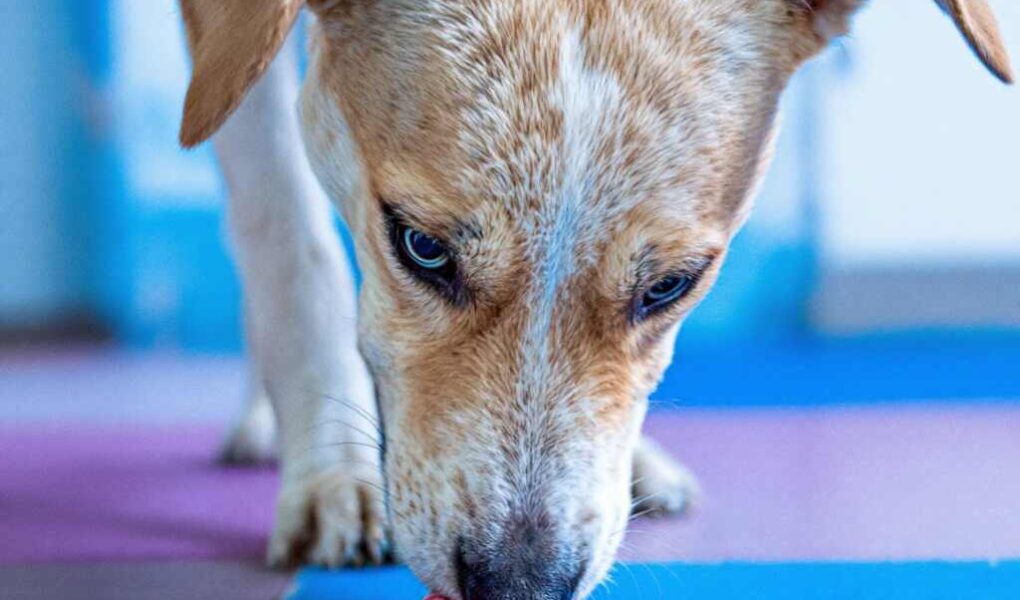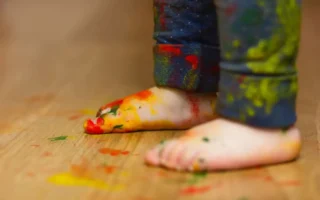Understanding your dog’s behavior is crucial for fostering a healthy and happy relationship with your furry friend. Dogs, much like humans, have their unique ways of expressing themselves, and sometimes these behaviors can be puzzling. One such behavior that often leaves dog owners scratching their heads is floor licking. Why does my dog keep licking the floor? This question is more common than you might think, and it can be a source of concern for many pet owners.
| Reason | Description |
|---|---|
| Food | Dogs often lick the floor to clean up food scraps or spills, such as coffee or grease. This behavior is typically harmless and driven by the desire to ingest any remaining crumbs |
| Upset Stomach | Excessive licking can be a response to gastrointestinal issues like nausea, pancreatitis, or irritable bowel syndrome. Licking may help increase saliva production to soothe the stomach or prepare for vomiting |
| Stress and Anxiety | Repetitive licking may indicate stress or anxiety, serving as a coping mechanism. Changes in the environment, such as moving homes or new pets, can trigger this behavior |
| Boredom | Dogs may lick the floor out of boredom, especially if they lack physical and mental stimulation. Providing more exercise and engaging activities can help reduce this behavior |
| Medical Issues | Conditions like Cushing’s disease or dental problems can lead to excessive licking. A veterinary examination is necessary to rule out serious health concerns |
| Neurological Disorders | In some cases, neurological issues can cause compulsive licking behaviors. If other medical causes are ruled out, further evaluation by a veterinary neurologist may be needed |
Understanding Dog Behavior
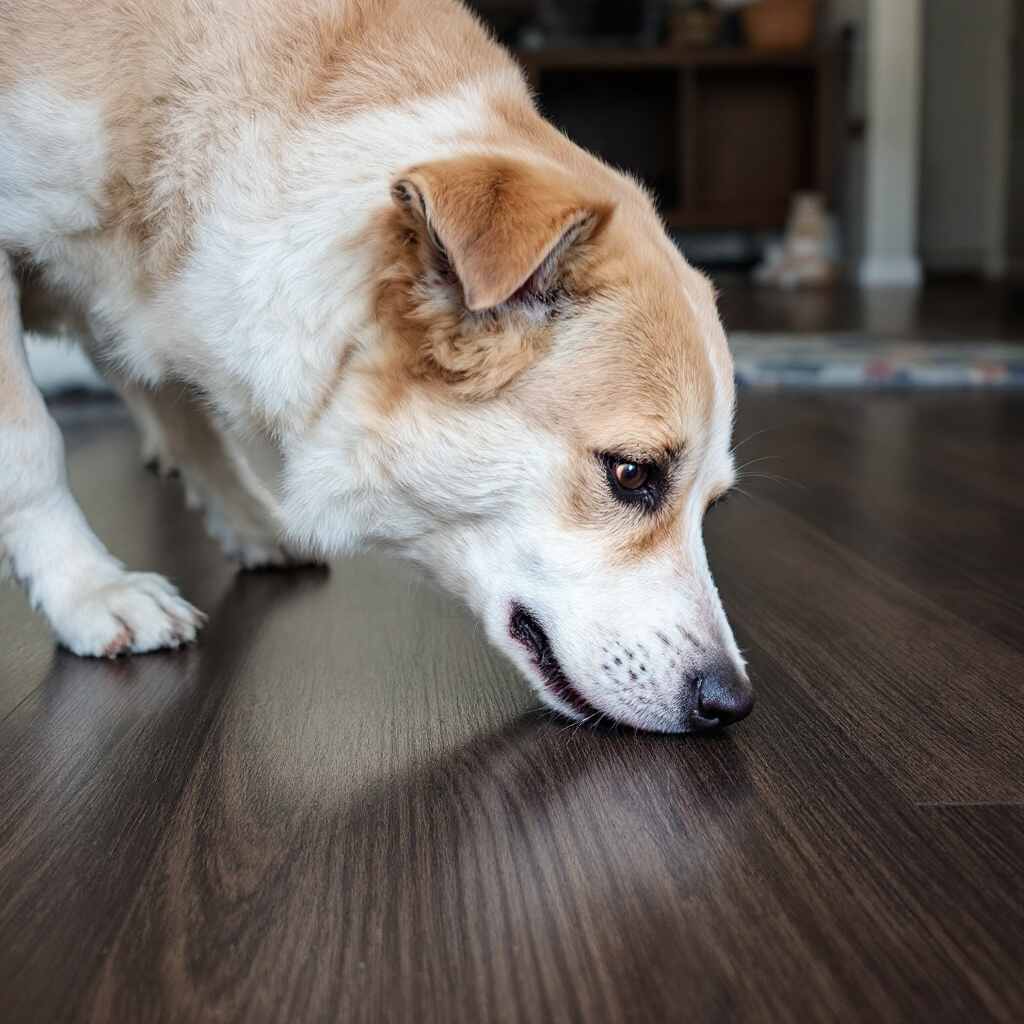
The Basics of Canine Psychology
Dogs perceive their environment in ways that are both similar to and different from humans. Their world is primarily experienced through their senses, especially smell and taste. This sensory-driven perception means that dogs often explore their surroundings by licking and sniffing. Instinctual behaviors play a significant role in how dogs interact with the world. These behaviors are deeply rooted in their evolutionary past and are essential for their survival and well-being.
Understanding these instinctual behaviors can help us make sense of why dogs do what they do. For instance, licking can be a way for dogs to gather information about their environment, much like how we might read a book or browse the internet.
Common Behavioral Patterns in Dogs
Dogs exhibit a variety of behaviors that can tell us a lot about their emotional and physical state. Some common behaviors include wagging their tails, barking, and, yes, licking. Each of these actions can have multiple meanings depending on the context. For example, a wagging tail can indicate happiness, but it can also signal anxiety or aggression.
Recognizing signs of distress or discomfort in your dog is crucial. Changes in behavior, such as excessive licking, can be a sign that something is amiss. It’s important to pay attention to these cues and consider what they might be trying to communicate.
Reasons Dogs Lick the Floor
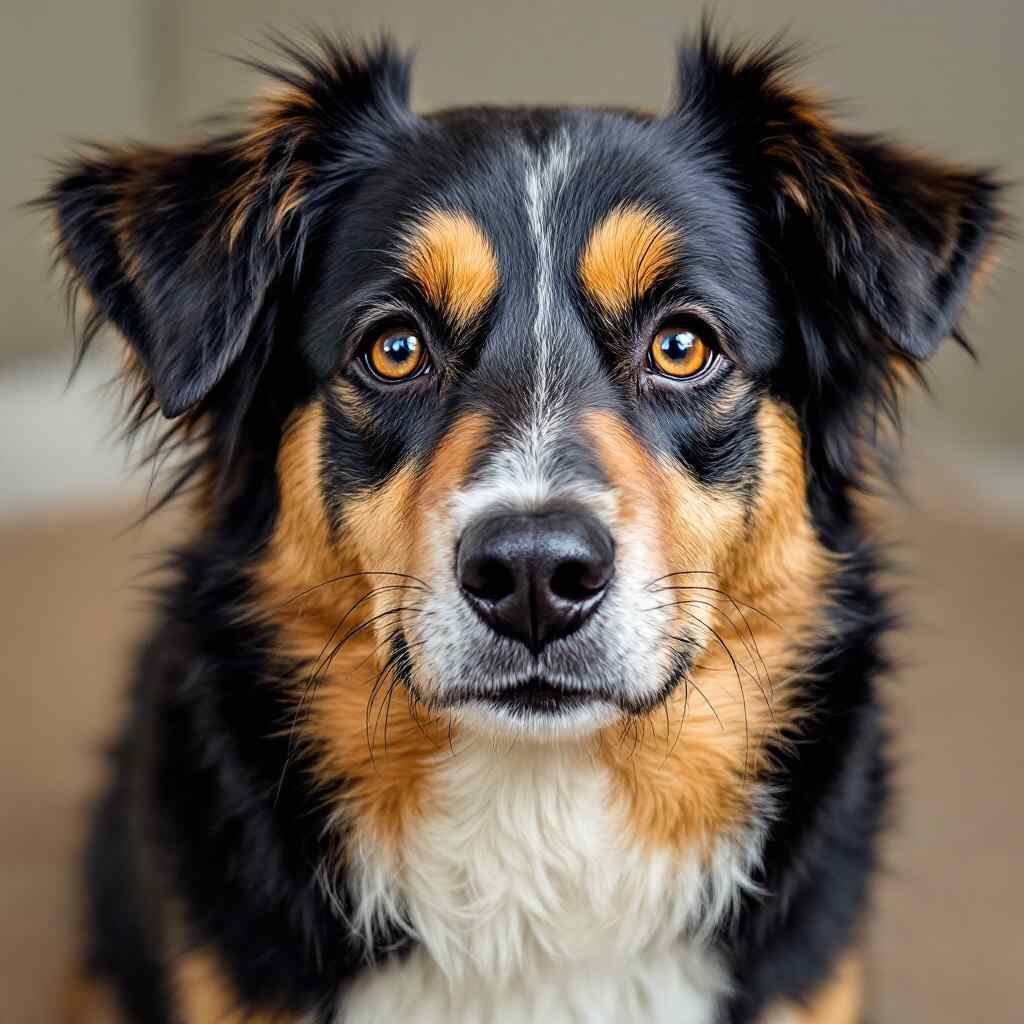
Natural Instincts
One of the primary reasons dogs lick the floor is due to their natural instincts. Foraging behavior is a significant part of a dog’s ancestral past. Wild dogs and their relatives, such as wolves, often scavenge for food, and licking surfaces can be a way to find food particles or interesting scents.
This behavior is linked to their hunting and scavenging instincts. Even though domesticated dogs don’t need to hunt for their meals, these instincts remain a part of their behavior repertoire. Licking the floor might simply be a way for your dog to explore their environment and satisfy their curiosity.
Health-Related Issues
Sometimes, floor licking can be a sign of underlying health issues. Gastrointestinal problems, such as nausea or discomfort, can lead dogs to lick surfaces in an attempt to soothe themselves. Allergies, whether food-related or environmental, can also cause excessive licking as dogs try to alleviate itching or irritation.
If your dog is persistently licking the floor, it’s important to consult a veterinarian. They can help determine if there’s a medical condition that needs to be addressed. Early intervention can prevent more serious health problems down the line.
Behavioral Problems
Behavioral issues such as anxiety, boredom, and stress can also trigger floor licking. Dogs, like humans, can experience stress and anxiety, which may manifest in repetitive behaviors like licking. Compulsive behaviors can develop if these issues are not addressed, leading to a cycle that’s hard to break.
Understanding the root cause of your dog’s anxiety or boredom is key to addressing these behaviors. Providing mental stimulation and ensuring your dog gets enough exercise can help reduce stress and prevent compulsive licking.
Observing and Interpreting Your Dog’s Behavior
Signs to Look For
When trying to understand your dog’s behavior, it’s important to look for changes in their routine. Changes in eating habits, energy levels, and social interactions can all provide clues about your dog’s well-being. Monitoring these changes can help you identify patterns and potential triggers for behaviors like floor licking.
Effective monitoring involves paying attention to when and where your dog licks the floor. Is it after meals, during certain times of the day, or in specific locations? These observations can help you pinpoint the cause and address it more effectively.
Contextual Factors
The environment and routine play a significant role in shaping your dog’s behavior. Changes in their surroundings, such as moving to a new home or the introduction of a new pet, can influence their actions. Understanding these contextual factors can help you identify triggers for licking and other behaviors.
It’s also important to consider your dog’s daily routine. Dogs thrive on consistency, and disruptions can lead to stress and anxiety. Maintaining a stable routine can help reduce these feelings and prevent behaviors like floor licking.
Solutions and Management Strategies
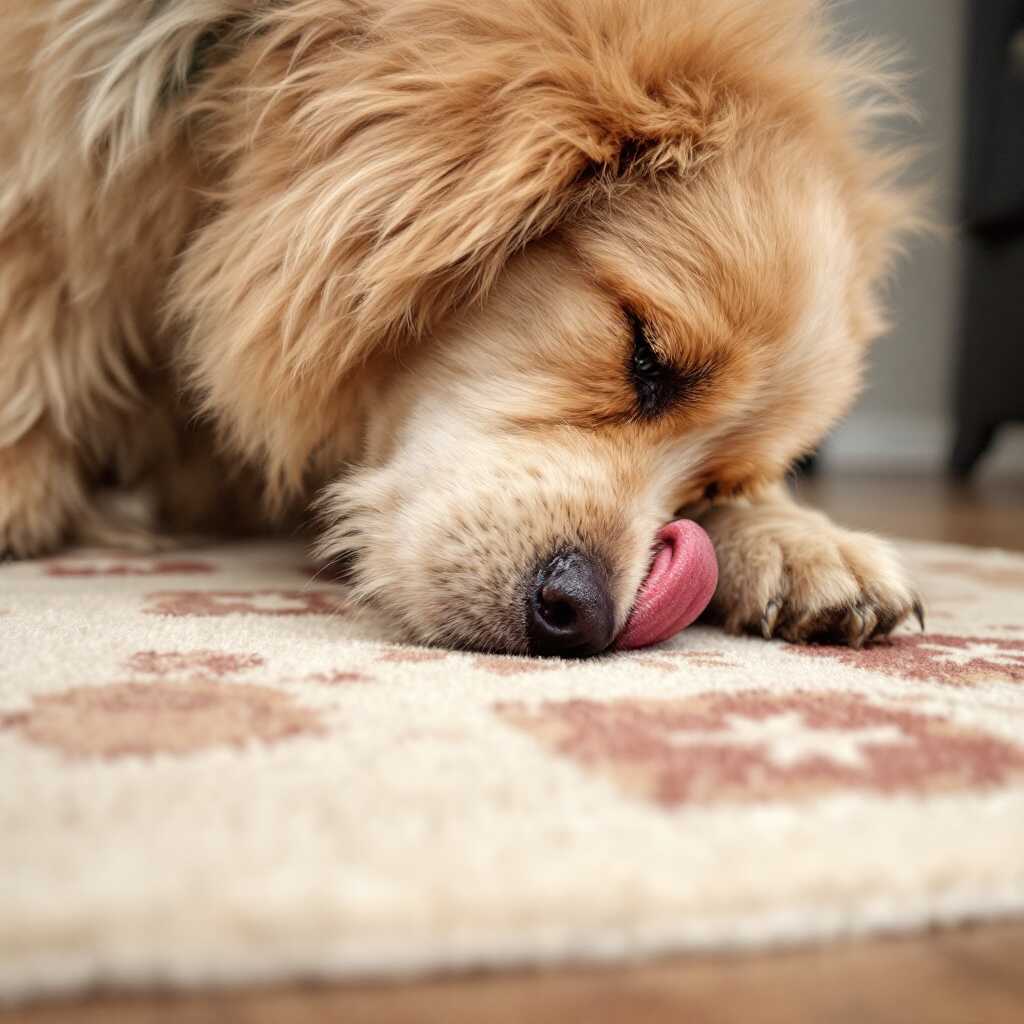
Addressing Health Concerns
If you suspect that health issues are causing your dog’s floor licking, it’s crucial to take action. Steps to take include observing your dog’s behavior closely, noting any additional symptoms, and consulting with a veterinarian. A professional can provide a thorough examination and recommend appropriate treatments or dietary changes.
Knowing when to seek veterinary advice is important. If the licking is persistent and accompanied by other symptoms like vomiting or diarrhea, it’s best to consult a vet as soon as possible.
Behavioral Modification Techniques
Training and behavior modification can be effective in reducing floor licking. Training methods such as positive reinforcement can help redirect your dog’s attention and reward them for not licking. Engaging your dog with mental stimulation and regular exercise can also help alleviate boredom and reduce stress.
Interactive toys, puzzle feeders, and regular playtime can keep your dog mentally and physically engaged, reducing the likelihood of compulsive behaviors.
Creating a Positive Environment
Creating a positive and stress-free environment is essential for your dog’s well-being. Tips for reducing anxiety include providing a safe space for your dog to retreat to, using calming aids like pheromone diffusers, and maintaining a consistent routine.
Consistency is key in managing your dog’s behavior. Regular feeding times, walks, and play sessions can help your dog feel secure and reduce anxiety-related behaviors like floor licking.
Expert Insights and Resources
Professional Advice
Experts in canine behavior, such as veterinarians and behaviorists, offer valuable insights into why dogs lick the floor. They emphasize the importance of understanding the underlying causes and addressing them appropriately. Consulting with professionals can provide tailored advice and strategies for managing your dog’s behavior.
Recommended Reading and Resources
For those interested in learning more about dog behavior, there are numerous resources available. Books, articles, and websites offer in-depth information and practical tips for understanding and managing your dog’s actions. Some recommended resources include:
- “The Other End of the Leash” by Patricia McConnell
- “Inside of a Dog” by Alexandra Horowitz
- Websites like the American Kennel Club and the ASPCA offer valuable insights and advice.
Conclusion
Understanding why your dog licks the floor is an important step in ensuring their health and happiness. By observing their behavior, considering potential health issues, and implementing management strategies, you can address this behavior effectively. Remember, your dog’s actions are a form of communication, and it’s up to us as pet owners to listen and respond appropriately.


